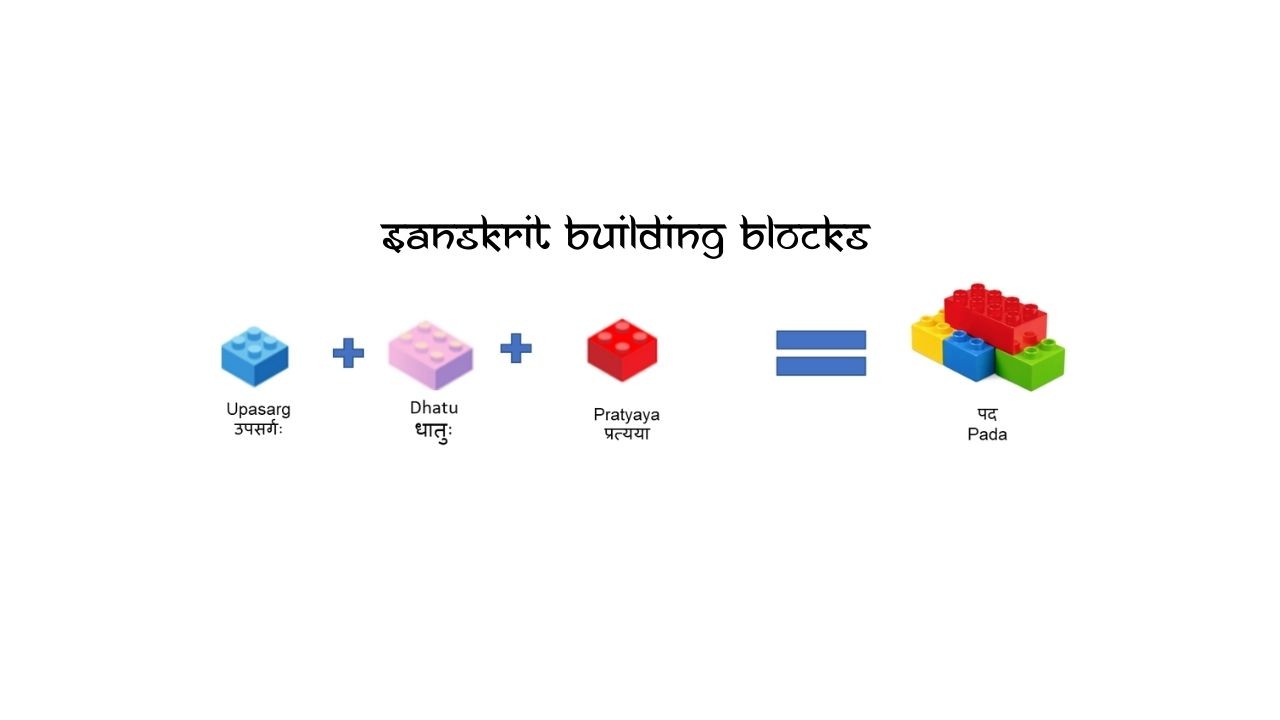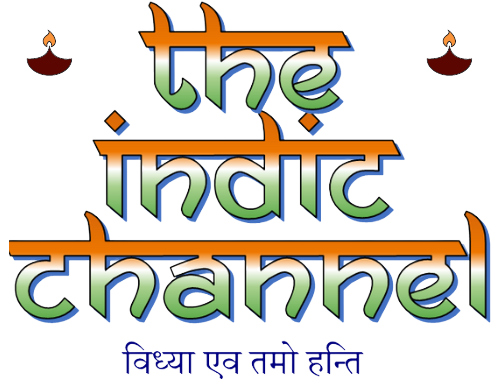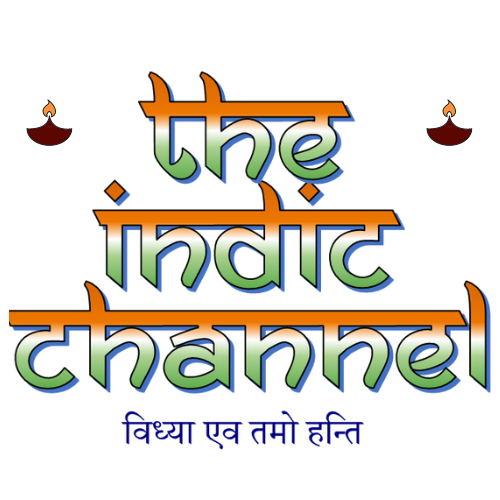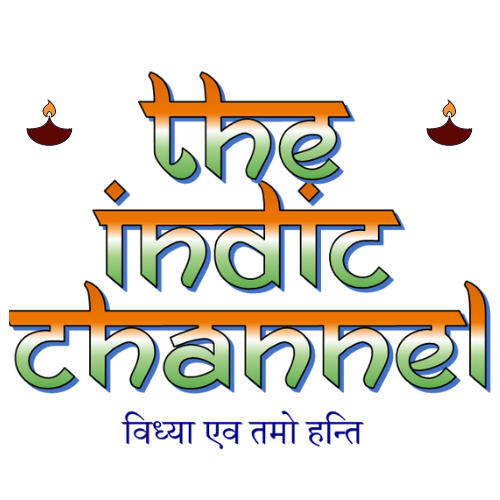Sanskrit – The Lego of Languges

One often hears a lot of praise associated with Sanskrit. It’s a Divine language, God’s own language, Mother of all languages, perfect for computers etc. Makes one wonder whether all of this is the jingoistic prattle of zealots and fanatics. Maybe knowing more about the language will help you decide better what all the fuss is about. There are quite a few fundamental features about Sanskrit that make it amazingly versatile and yet incredibly easy to learn and understand. Over the next few posts I would like to acquaint you with some of these feature.
If I were to pick the one aspect of Sanskrit that stands out it is this
– Sanskrit is like a box of lego pieces.
You can go ahead and make new words using these pieces. The contents of the toolbox can be simplistically classified into 3 major types of building blocks.
- Dhatus (धातुः) a sound that has a meaning usually associated with an action
- Suffixes (प्रत्यया) which conveys a lot of information about the word
- Prefixes (उपसर्गः) helps you enhance the meaning of the word
With this tool box one can make verbs , nouns, adjectives – just about any kind of verbal construct that you can think off!!
To elaborate further, these 2000 sounds are called Dhatus (धातुः). The sound Kr (कृ) is a Dhatu that means to do an action, Likh (लिख्)is a Dhatu that means to write, drish (दृश्) means to see, daa (दा) means to give and so on. The Dhatus by themselves don’t form words. They need to be matched with the right suffix. These suffixes called Pratyayas (प्रत्यया) help you form verbs, nouns and adjectives when they are combined with the Dhatus. There are different types of Pratyayas and they carry a lot of information about the word. Depending on how the word ends, it is possible for a listener to understand the gender, the context or case and the number of people who are involved in the action. Also a lot of other information is conveyed, like the tense, the mood of the person etc.
For example the Dhatu Kr can spawn off a number of different words like
करोति Karoti (He Does), करिष्यति Karishyati (He Will Do), कुर्मः Kurmah (We Will Do), करणम् Karanam (That which is done), चिकीर्षति ChiKirshati (He Desires to Do), कारयति Karayati (He Gets it Done by Another), कारकः Karakah (He Who Gets It Done), कर्ता Karta (The Doer)
In all of these the root sound of Kr is very obvious and identifiable and helps the listener get a context that these words are all related to the action of Doing
Infact each Dhatu when combined with the different suffixes or Pratyayas (प्रत्यया) can generate up to more than 1,00,000 words. 104920 to be precise.
And to enhance the word you can add prefixes or Upasargas (उपसर्गः). There are 22 upasargas that enhance the meaning of the word (either to provide synonyms, antonyms or even completely different meanings)
These words which are also common to other languages are examples of different upsargas added to a Dhatu Kr.
उपकार Upakaar (Favour), प्रकृति Prakriti (Nature) , व्याकरणम् Vyakaranam (That which Explains i.e. Grammer) . Can you spot the Kr in Samskritam?
संस्कृतम् Samskritam (That Which is Purified) ,
And to take it one level higher, you can combine words to create a whole new word. These words are called Samasas (समासः)and they make the language complex and yet fun.
Karyakarta कार्यकर्ता a common word in Hindi too is a samasa that is a combination of 2 words both with roots in Kr – Karya कार्य (work) + Karta कर्ता (Doer) and refers to a grass-root worker.
It’s not uncommon to find an entire paragraph worth of information in a single long samasa .
What this means is that Sanskrit is a very versatile and dynamic language. And because of this Sanskrit is able to stay contemporary as well. We have words for computer, internet, keyboard etc which make perfect sense to the listener even though these objects never even existed during the peak of the language. And Sanskrit has the ability to create words for objects that we are yet to invent, discover or even conceptualize! Talk about future ready!!



I agree completely.